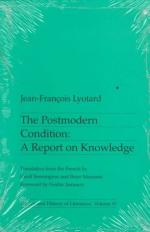|
This section contains 570 words (approx. 2 pages at 400 words per page) |

|
The Pragmatics of Narrative Knowledge Summary and Analysis
There is a distinction between knowledge and science. Science constitutes a subset of knowledge. As knowledge points at denotative entities, so does science. Yet knowledge not only deals with denotative knowledge, but also with how a person should live their lives and concerns about what needs to be done. In the modern age, these concerns have fallen under the purview of science.
Knowledge addresses denotative questions but also deals with moral questions. Knowledge addresses not only prescriptive utterances but also makes evaluative or ethical judgments. Through knowledge, one is able to make judgments, whether they are historical narratives or simply scientific ones.
For example, science is looked at in the pragmatic sense. Science claims something is good to the extent that it is useful. Other relevant criteria exist for knowledge including justice, beauty...
(read more from the The Pragmatics of Narrative Knowledge Summary)
|
This section contains 570 words (approx. 2 pages at 400 words per page) |

|




